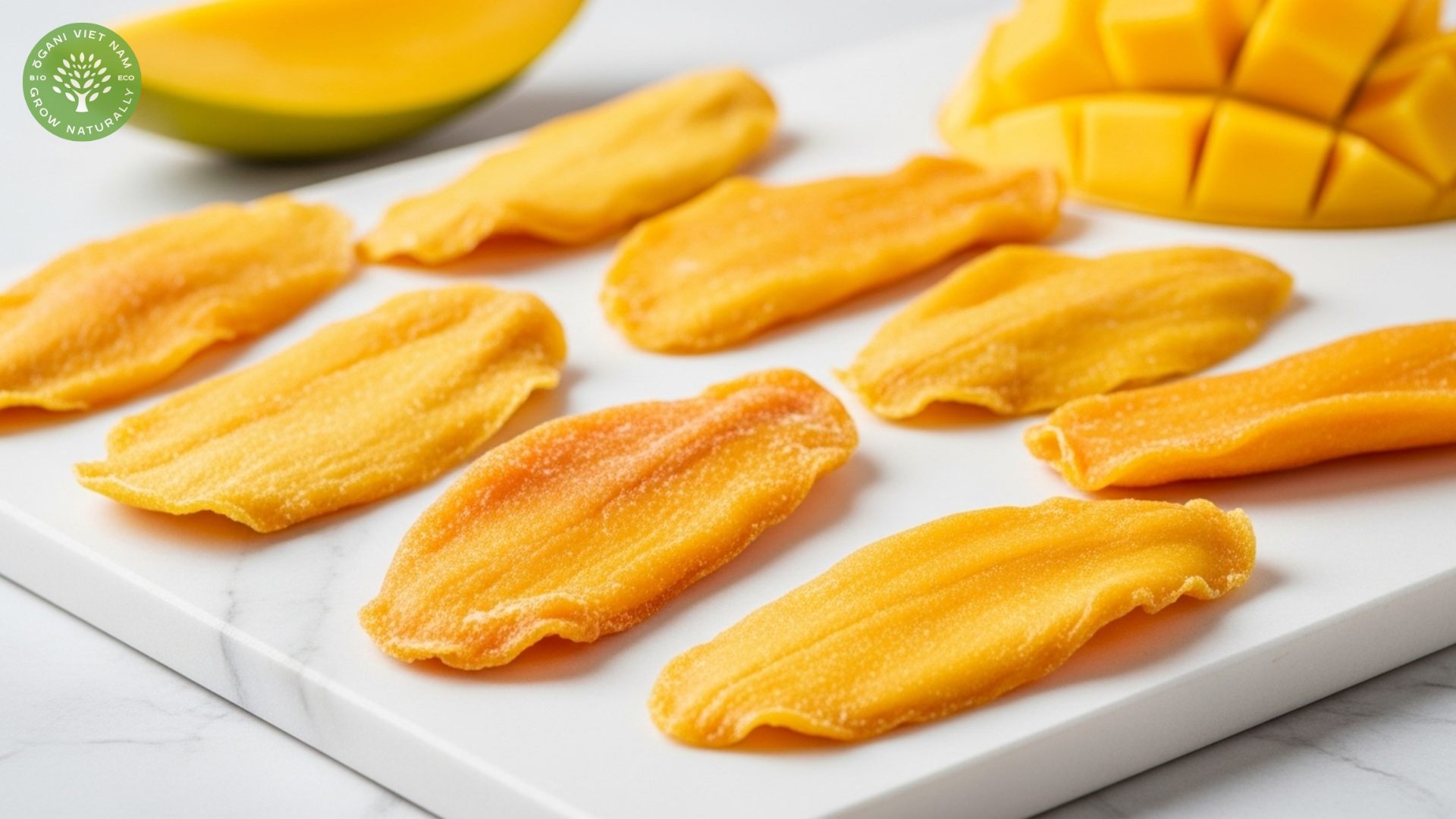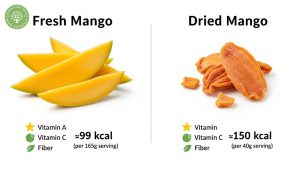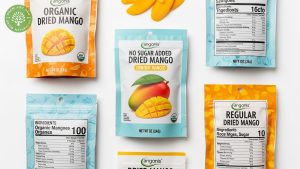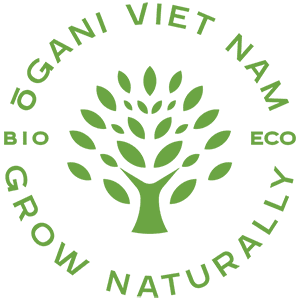
Dried mangoes healthy snacking represents a nutritious option when consumed in moderation, offering significant amounts of vitamins A and C, fiber, and antioxidants. While dried mangoes healthy varieties contain concentrated natural sugars due to the dehydration process, their nutrient density makes them a healthier alternative to processed sweets.
The nutritional powerhouse of dried mango
When fresh mangoes undergo the drying process, their water content is removed while most nutrients become concentrated. This transformation creates a snack that’s both convenient and nutrient-dense. A typical 40-gram serving of dried mangoes healthy option provides essential vitamins and minerals that support various bodily functions.

The concentration process means you’re getting more nutrients per bite compared to fresh fruit, though this also means higher calorie density. Understanding this balance helps you make informed decisions about portion sizes and frequency of consumption.
Essential vitamins and minerals in dried mangoes
Vitamin A and beta-carotene content
Dried mangoes excel as a source of vitamin A, containing significant amounts of beta-carotene that your body converts into this essential nutrient. This vitamin plays a crucial role in maintaining healthy vision, supporting immune function, and promoting proper cell growth. The concentrated nature of dried fruit means you’re getting a more potent dose of these eye-health supporting compounds.

Vitamin C for immune support
Despite the drying process, dried mangoes retain substantial amounts of vitamin C, though less than their fresh counterparts. This powerful antioxidant vitamin helps boost your immune system, supports collagen production for healthy skin, and aids in iron absorption. Regular consumption can contribute to your daily vitamin C requirements.
Fiber for digestive health
The dietary fiber content in dried mangoes supports healthy digestion and can help you feel satisfied longer. This soluble and insoluble fiber combination promotes regular bowel movements, may help stabilize blood sugar levels, and contributes to heart health by potentially lowering cholesterol levels.
Antioxidant properties and health benefits
Dried mangoes contain various antioxidants including polyphenols, flavonoids, and carotenoids. These compounds help combat free radicals in your body, potentially reducing oxidative stress and supporting overall cellular health. The antioxidant profile remains largely intact during the drying process, making these fruits a valuable addition to an antioxidant-rich diet.
Research suggests that regular consumption of antioxidant-rich foods like dried mangoes healthy varieties may support heart health, brain function, and may even have anti-inflammatory properties. The key is understanding how dried mangoes healthy consumption fits into your overall dietary pattern. However, more research is needed to fully understand the extent of these benefits.
Sugar content and portion control considerations
The primary concern with dried mangoes is their concentrated sugar content. The dehydration process removes water while leaving natural fruit sugars, resulting in a product that’s significantly higher in calories and sugar per serving than fresh mango. This concentration means a small handful can contain as much sugar as a large piece of fresh fruit.
For optimal health benefits, stick to recommended serving sizes of about 40 grams daily. This portion provides nutritional benefits while keeping sugar intake manageable. People with diabetes or those monitoring their sugar intake should be particularly mindful of portions and consider consulting with healthcare providers about incorporating dried fruits into their diet.
Choosing dried mangoes healthy options for optimal nutrition
Look for no added sugar varieties

When shopping for dried mangoes, prioritize products labeled “no sugar added” or “unsweetened.” Many commercial varieties contain added sugars, artificial sweeteners, or high fructose corn syrup that significantly increase the caloric and sugar content while providing no additional nutritional value.
Organic and preservative-free options
Organic dried mangoes often avoid sulfur dioxide and other preservatives that some people prefer to limit in their diet. While preservatives help maintain color and extend shelf life, choosing organic options ensures you’re getting fruit that’s closer to its natural state.
Understanding ingredient labels
Quality dried mangoes should have minimal ingredients – ideally just mangoes. Avoid products with long ingredient lists containing artificial colors, flavors, or excessive preservatives. The simpler the ingredient list, the closer you are to pure fruit nutrition.
Incorporating dried mangoes into a balanced diet
Dried mangoes work well as part of a balanced snacking strategy. Pair them with protein sources like nuts or seeds to help balance blood sugar response and increase satiety. They also make excellent additions to yogurt, oatmeal, or trail mixes.
At Ogani VN, we recommend viewing dried mangoes healthy options as an occasional treat rather than a daily staple. Their concentrated nature makes them perfect for satisfying sweet cravings while providing genuine nutritional value, unlike processed snacks that offer empty calories.
Consider using dried mangoes as a natural sweetener in homemade granola, energy balls, or baked goods. This approach allows you to control portions while adding natural fruit flavor and nutrients to your favorite recipes.
Frequently Asked Questions
How much dried mango can I eat daily? The recommended portion is about 40 grams (roughly 1/4 cup) per day. This amount provides nutritional benefits while keeping sugar and calorie intake reasonable.
Are dried mangoes better than fresh mangoes? Both have advantages. Fresh mangoes contain more vitamin C and water, helping with hydration. Dried mangoes are more concentrated in certain nutrients but also higher in calories and sugar per serving.
Can people with diabetes eat dried mangoes? People with diabetes should consume dried mangoes in small portions and preferably as part of a balanced meal or snack that includes protein or healthy fats to help moderate blood sugar response. Consulting with a healthcare provider is recommended.
Do dried mangoes help with weight loss? While dried mangoes can be part of a weight management plan due to their fiber content and natural sweetness that may satisfy cravings, their high calorie density means portion control is essential.
What’s the difference between sulfured and unsulfured dried mangoes? Sulfured varieties use sulfur dioxide as a preservative to maintain color and extend shelf life. Unsulfured options are more natural but may have a slightly different appearance and shorter shelf life.
Making smart choices with dried mangoes healthy snacking
Dried mangoes can be a healthy addition to your diet when chosen wisely and consumed in appropriate portions. Their concentration of vitamins A and C, fiber, and antioxidants makes them nutritionally superior to many processed snacks. However, their high sugar and calorie content requires mindful consumption.
At Ogani VN, we encourage you to explore our selection of premium, no-sugar-added dried mangoes to experience the perfect balance of taste and nutrition. Make the smart choice for your health journey and discover how quality dried fruits can satisfy your cravings while supporting your wellness goals. Browse our organic dried fruit collection today and taste the difference that quality makes.
Read more:
- Are Dried Mangoes Healthy? The Complete Guide To Benefits
- Organic Dried Mango: Your Complete Guide To Healthy Snacking
- Dried Mango Benefits: 7 Amazing Health Reasons To Include This Superfruit In Your Diet
- Dried Mango Nutrition: Complete Guide To Health Benefits.

